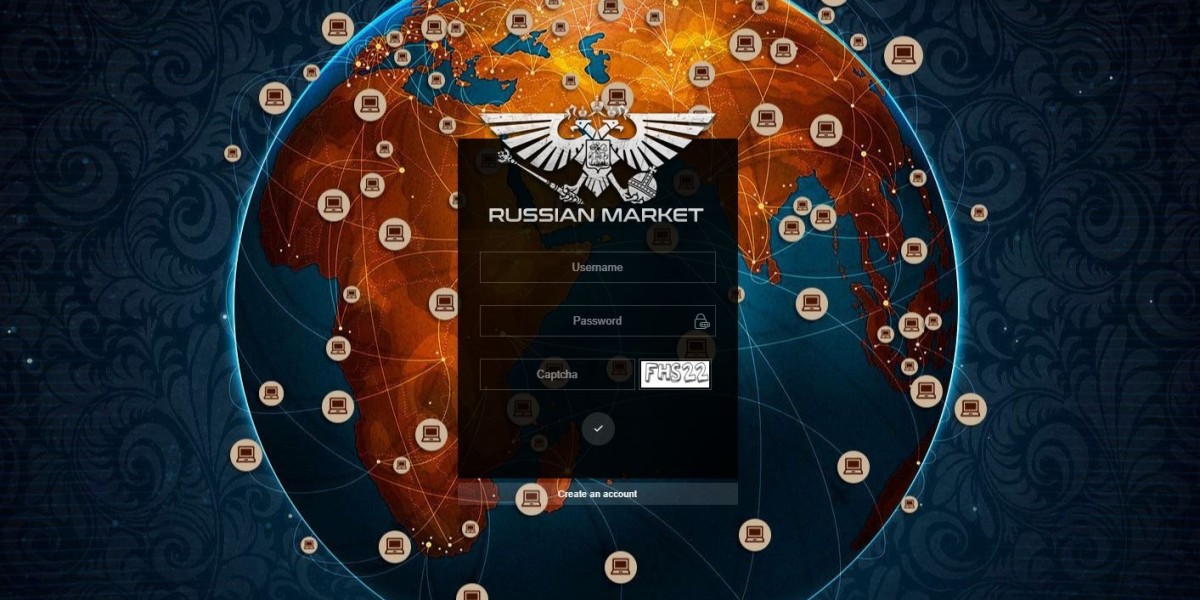In the hidden corners of the internet, where anonymity reigns and cybercriminals thrive, there exists a marketplace known as Russian Market. Unlike traditional e-commerce platforms, this dark web site doesn’t sell consumer goods or services—it trades in something far more dangerous: stolen digital data. From login credentials and browser cookies to full identity profiles, Russian Market serves as a one-stop shop for criminals looking to exploit stolen information.
This article explores what Russian Market is, how it operates, and why it's considered one of the most alarming platforms in today’s cybercrime economy.
What Is Russian Market?
Russian Market—sometimes referred to in underground forums as “R.Market”—is a dark web marketplace specializing in the sale of malware logs, login credentials, cookies, and stolen personal information. Unlike traditional dark net sites focused on selling credit cards or drugs, Russian Market offers access to compromised data extracted from infected devices.
The platform became widely known among cybercriminals due to its ease of use, low prices, and vast database of victims' digital footprints.
What’s for Sale on Russian Market?
russian market doesn't just offer stolen credit cards—it goes deeper. It focuses on access-based data, often harvested through info-stealer malware such as RedLine, Raccoon Stealer, or Vidar.
Here’s what buyers can typically purchase:
Login credentials: Email, social media, online banking, crypto wallets, and shopping accounts
Browser data: Autofill forms, saved passwords, and session cookies
Fullz: Complete identity profiles including name, date of birth, address, SSN, and phone numbers
System details: IP addresses, system language, browser version, and device fingerprints
Crypto wallet backups: Files and seed phrases that can be used to steal cryptocurrency
Each listing usually includes details about the victim's device and accounts, allowing attackers to carry out account takeovers, fraud, or identity theft with minimal effort.
How Does Russian Market Work?
Russian Market is not publicly accessible. It operates on the dark web, requiring users to connect through the Tor network or similar anonymizing tools. Access is either restricted or hidden behind invite-only systems, ensuring only vetted or serious cybercriminals can participate.
Here’s how it generally works:
Registration: Users create accounts anonymously.
Funding: Bitcoin or Monero is used to load wallets for purchases.
Search Tools: Users can filter logs by country, site domain, IP range, or keyword.
Purchase & Download: For as little as $2–$10, buyers can download full logs of stolen browser data.
Exploit: Data is then used for fraudulent activity, phishing campaigns, or credential stuffing attacks.
The marketplace is updated frequently, as new infected systems are added daily by malware operators.
Why Is Russian Market Dangerous?
Unlike carding shops that sell individual credit card numbers, Russian Market provides deep access into a victim’s digital life. The information sold can:
Bypass multi-factor authentication using stolen cookies
Enable full identity theft for credit fraud or fake loan applications
Compromise corporate accounts, leading to business data breaches
Provide access to crypto wallets, resulting in irreversible asset theft
Facilitate phishing attacks using legitimate email logins
The low cost and high volume of data make it easy for even low-skill criminals to engage in serious cybercrime.
How Can You Protect Yourself?
Because Russian Market relies on data stolen from infected devices, prevention starts with good cyber hygiene:
Install and regularly update antivirus software
Avoid downloading unknown files or clicking suspicious links
Use a password manager to create strong, unique passwords
Enable two-factor authentication (2FA) on all important accounts
Check for unauthorized logins using tools like HaveIBeenPwned
Regularly clear cookies and browser cache
Additionally, businesses should educate employees on phishing, use endpoint protection tools, and conduct routine security audits.
Final Thoughts
Russian Market represents the growing threat of data-centric cybercrime. It's not just a carding shop or malware bazaar—it's a platform that enables criminals to hijack digital lives with a few clicks and a few dollars. While law enforcement agencies around the world work to track and shut down such marketplaces, their existence is a stark reminder of how critical cybersecurity is in the digital age.
As individuals and organizations, staying vigilant, securing personal data, and monitoring for suspicious activity can help reduce the risk of falling victim to platforms like Russian Market.








